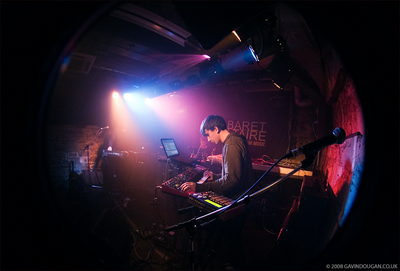
After being assigned to review what was seemingly an inconspicuous album from a little known ambient electronica producer, things… changed. Robert Logan’s debut album, ‘Cognessence’ was so crammed full of synth wash, thuddering drum patterns and the kind of ruthless fusion of styles and sheer ambition that it quickly became the benchmark used by this reviewer to judge all other experimental-drone-IDM-electronica projects against; a process I’m not in any way proud of but one I'll stand by, defiantly.
With his sophomore album, ‘Inscape’ out in shops now we threw a few questions his way, aiming to pry a whole heap of texture from his answers.
Sonic Router: Can you provide those who may not know you with a bit of background info?
Robert Logan: I like to spend many hours a day immersed in making, playing and arranging musical sounds. It’s a beautiful world to inhabit. Some of the results of this obsession have been released on Slowfoot Records across two EPs and two albums, the latest of which is ‘Inscape,’ a release I’m very excited about.
A less ferocious side to these musical explorations has also been released on Hypnos Records under ‘Sense Project’, and that will hopefully be followed by a new ambient album at some point in the future. When I am not making music for myself, I sometimes create music for other artists or other mediums, like film, and I’m very thankful for the people I have been able to work with so far.
Outside of music who are you? What do you do on the daily?
I like reading quite a lot. I used to go out to raves fairly often, but I haven’t done that for a while. I’ve also tried making some short films, but it’s difficult for me to convince my friends to do the ridiculous things I want them to do for the videos anymore. The ones that were completed were fairly awful, so I suppose that’s understandable. They tended to revolve around certain objects, like a shovel or a towel, and they generally involved a lot of twitching, swaying, and bouts of meaningless conversation between humans and animals, or humans and inanimate objects.
Apart from that, I like looking after my insects, writing, drawing ludicrous pictures, talking to people, going to concerts, and walking.
How did you get into recording music?
When I was seven, I began improvising on the piano whenever I could. I think it was partly because I saw my father improvising on the piano himself, and partly because he would play me lots of fierce 20th and 21st century classical pieces – perhaps I was copying what he did, inspired by the music he played me. But that drive to create always seems to have been there; if it wasn’t the piano, it was something else. I also learned music theory and had lessons on the piano during this period, neither of which interested me like making music did.
On my eleventh birthday I got Cakewalk Home Studio 9 and a lame Yamaha keyboard. Those early attempts at music creation were purely melodic/harmonic and MIDI-driven. Soon, however, I got into experimental electronic music and audio editing. I began trying to create new sounds with any weird methods I could think up and I began arranging pieces in accordance with my creative impulses rather than any particular rules or formulas. I think I’ve kept doing that until today. I’ve just become more obsessive over details and keener on refining pieces until they sound as good as I think they should sound.
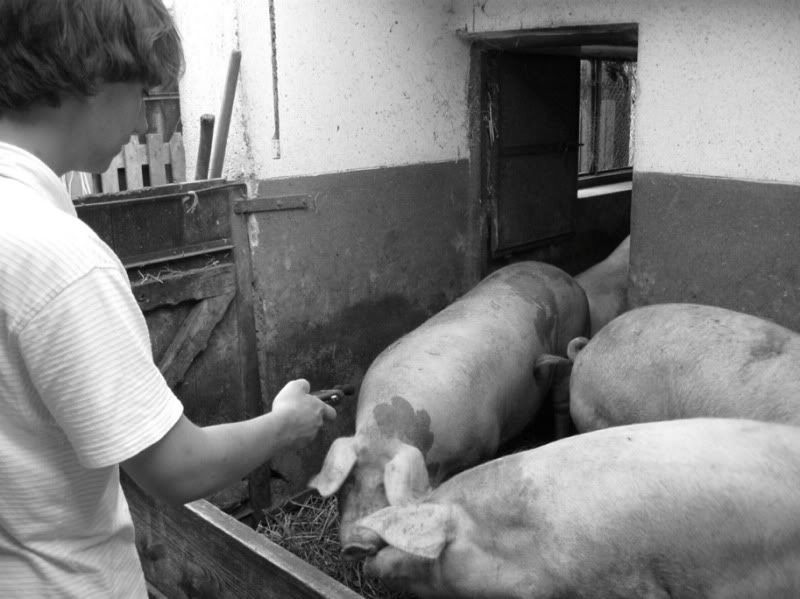
Whats your production setup like? How has it changed since day dot? Are you still making music in a shed?
I am still in the shed, but most money I have I spend on equipment. I’ve accumulated a few bits of hardware over the last few years, including a bunch of synths, an MPC, Kaos pads, theremin, and some old external effects units. I like the physicality of hardware. There’s a cimbalom from Hungary, which has already featured in a mangled form on a couple of released tracks, and I’ve got a strange collection of acoustic instruments from Ebay and other places. Everything normally ends up on the computer where it is cut to shreds and put through various processes and then carefully reassembled again.
Musical influences are way too huge a thing to categorise in one interview but can you give us 3 and a few words to describe what the influences and how/why that maybe impact on what you do etc?
This is a hard one, because so many styles, including dub, Detroit techno, synth pop, drones, and musique concrète all feed into the music making process. Perhaps Autechre, Aphex Twin and Igor Stravinsky would be a good three to name. I think it is probably obvious from my music why the first two are named. I rediscovered my fondness for classical music in my late teens and composers like Stravinsky have had a definite impact, even if it isn’t immediately obvious. ‘The Rite of Spring’ is possibly my favourite piece of music ever, and I listened to it a lot while I was creating both ‘Cognessence’ and ‘Inscape.’ It’s a brilliant, ferocious piece of music, full of the most beautiful dissonances and incredible rhythms you could ever want to hear. They should try blasting it out at parties as well as concert halls. I think it’d work well.
‘Inscape’ is your second album to be released on Slowfoot. How did you hook up with the label? And what can we expect from the new album?
I gave a CD of some of my music to Sarah Sarhandi - a great viola player and composer whom I was having music lessons with - when I was about sixteen. She liked it and passed it on to Ivor Guest. He subsequently got me involved in the Grace Jones project and told me to pass my music on to Frank Byng from Slowfoot. He heard it and liked it and agreed to put some material out.
I’m pretty useless at describing what my music is like, because I spend so much time alone non-verbally putting it all together, but with ‘Inscape’ I suppose I hope I’ve created something that is uncompromising, vivid and potent; something that rewards many repeated listenings and has moments of challenge, density and excess, but also moments of beauty or frailty. There’s madness in it, too, I think.



I heard on the grapevine Warp are sniffing around. Is there any truth in that rumour?
I didn’t know about that! It’d be nice if it was true... I did actually meet Steve Beckett when I was sixteen, at that Warp Works London Sinfonietta thing. He asked me what my music was like, and I suddenly became gripped by fear. I think I said something totally idiotic – I think I said, “Well, I’m not sure... It has these drumbeats in it and stuff.” I haven’t heard from them since. I did get a nice message about my ‘Grinder’ EP from Warpmart on Myspace, though...
I keep reading about your affliction with Hungarian folk music. Where does the influence come from? Is it something that you consciously seek to incorporate or does it happen organically?
My mother is Hungarian, so I have lots of intense memories form childhood of visiting her remote home village there every year. That’s how I became exposed to Hungarian folk music, and I still love it. Some of it is very raw and harrowing and it has some very unconventional, but very beautiful melodic and harmonic movements. Certain traditional folk pieces give me goose bumps every time I hear them. Melodic ideas come easily to me when I play the piano –that’s probably when the folk influences are most obviously present.
However, more often than not, I end up pushing things in a very different direction in the studio; it becomes more about sound crafting and rhythmic ideas and electronic influences probably come to the fore. Things are rarely planned or consciously placed within the music: it’s more of a case of sitting down and playing one thing and that idea sparking another and another until the whole piece grows. That process keeps going until it results in something that I find surprising and enjoyable to listen to. It’s action and reaction.
Machines also have an influence on the music, because of their very nature – I try to bend them and configure them as much as I can, but they still have an undeniable power of their own. But the folk influences are more present than one might think; often they’re just buried quite deeply in there. And what starts off as a one kind of piece often morphs into something completely different by the time it’s finished.
Why do you think your music turns out so dark? Are you a little unstable perhaps?
There are overpowering moods that hit me which are very odd. I like the absurd but I definitely do not find my own music dark, nor do I consciously try to make dark music. I think that’s probably in the ear of the beholder – all I want to do is create something muscular sounding; something rich that excites the ears. Within the music, there can be a tendency towards unusual harmonies, towards sometimes dissonant, sometimes frenzied, sounds. Those are the kind of sounds I find beautiful.
One thing I dislike is music that is tinged with a superficial darkness, or music that feels like it is actually trying to be ‘dark.’ That’s a very limiting approach. There are moments day by day where I experience everything quite intensely – and perhaps I’m trying to capture that feeling with my tracks. Certain outdoor environments and lighting conditions trigger these switches in mood – or they just happen at random.
At certain points on the album (‘Accurate Spit Boy’ perhaps is the most obvious example) the production sounds so intricate and manic. How do you get your music to sound so skitterish?
That track was mainly done on the MPC and the Nord Lead 3, apart from the last section, which has the cimbalom on it amongst other things. More detailed edits were then done on the computer. There’s no set way to achieve the skitterish-ness of the music – it can even be bashed in live – but normally it involves hours of detailed, zoomed-in cutting, processing, and pasting after that. Once you’re in a certain headspace that stuff becomes really fun.
You worked with Grace Jones, producing a few tracks for her newest album. Can you tell us a little about how you met her? What was the experience like? Is it different/difficult creating music with vocalists in mind?
I’ve actually created a lot of music with various vocalists; much of it hasn’t seen the light of day yet, or not in the form we wanted for various reasons outside our control. I’ll occasionally make some terrible songs of my own when my brain wonders off into weird territories.
With the Grace Jones tracks, though, Ivor had already created and structured much of the songs. I just added my elements on top, which were either played live at his studio, or programmed at my home and then given to him so he could choose the parts he liked best. I also programmed the sounds on the Nord Leads that are used in her live show.
Robert Logan Trio – Live @ The Luminaire
Your live show is particularly arresting, do you think the combination of a live drummer and electronics makes it more of a spectacle? Why the inclusion of live drums?
I’m still terrified by the prospect of playing live… Having two musicians with me on stage makes performing much more enjoyable. There is room for improvisation and decisions can be made on the fly during tracks. The Moog player, for example, also has a laptop, and we share elements of the tracks between ourselves; I’ll be triggering sequences from a track, and he’ll be triggering and mangling other bursts of sound from that track along with me. Frank is an incredible drummer and it’s a real privilege having him play live with me.
The tracks have been re-structured to take advantage of the drums, my synth playing and the Moog, so it’s more than making it a spectacle – we wanted to try a different sound for the live experience. The drums are integral to that different sound.
What have you got coming up after the album? More releases, tour etc?
I’ve just worked on some programming, loops and textures for Brigitte Fontaine’s new record. I’m also working on new ambient material for a possible Hypnos release. Other than that, I’m always making music, whether there’s a possibility of it ever being released or not. It’s an addiction. I’m also still eager for ‘Inscape’ to be heard by more people and I hope to play more gigs soon. I’d especially like to go back to play in Poland, as I appreciated the way they listened to the music there. I do have one festival in Lithuania on the 29th of May which I’m excited about doing.
Any wisdom you’d like to instill on the interweb?
If your pet praying mantis has begun shedding, make sure you haven’t left any crickets in its cage. You’ll end up with a soft-bodied, squirming giant of an insect being chewed on by its own prey in its own faeces half-attached to its own old exoskeleton at the bottom of its cage.
Also, it would be good if everyone purchased the entire Slowfoot back catalogue.
::
'Inscape' and the 'Accurate Spit Boy EP' are both out now on Slowfoot Records.
Link:
www.myspace.com/robertlogan
www.slowfoot.co.uk








































































































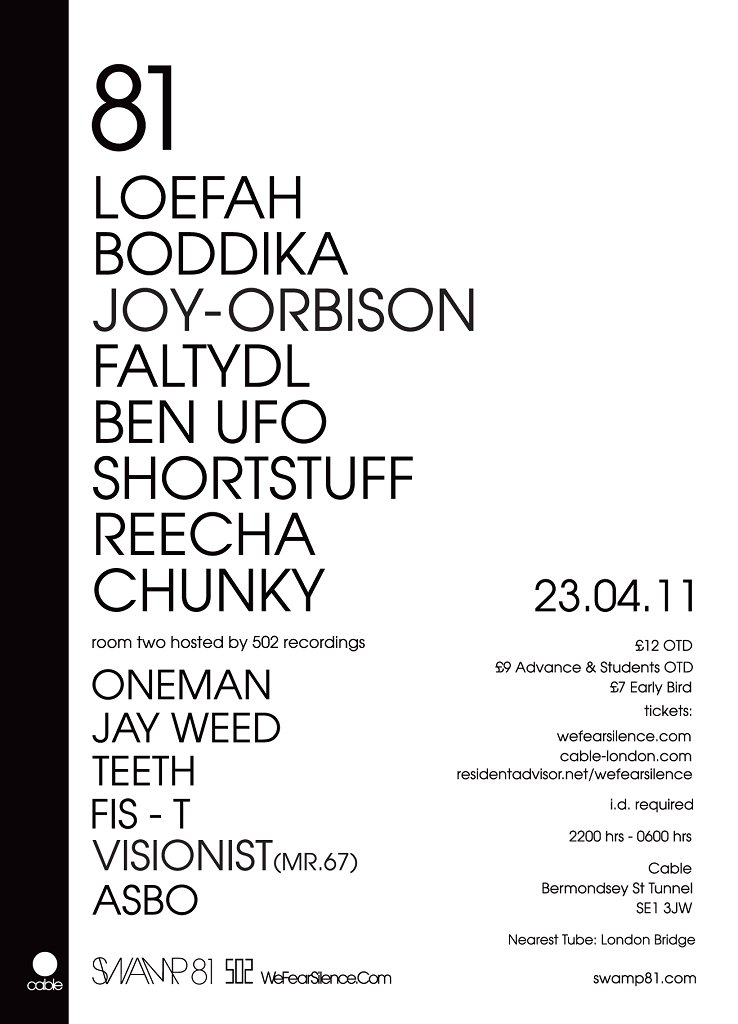


























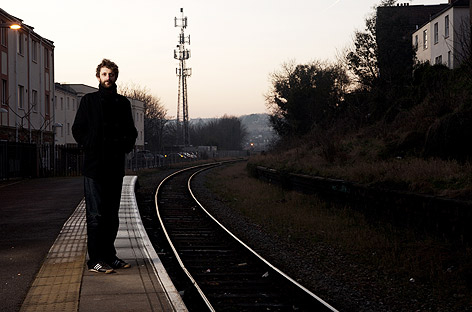



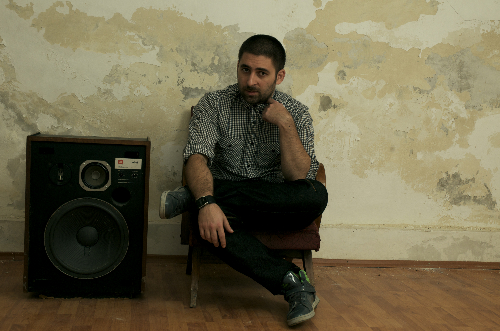
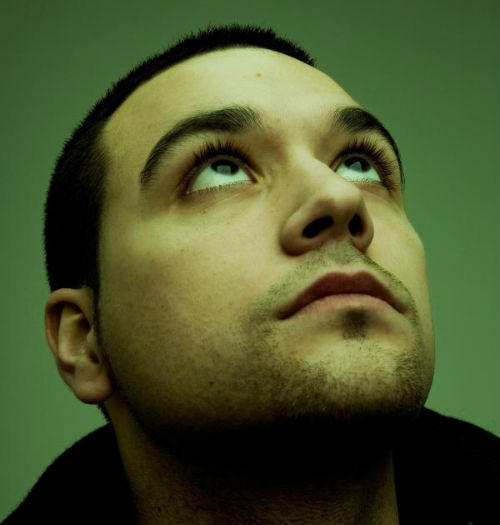




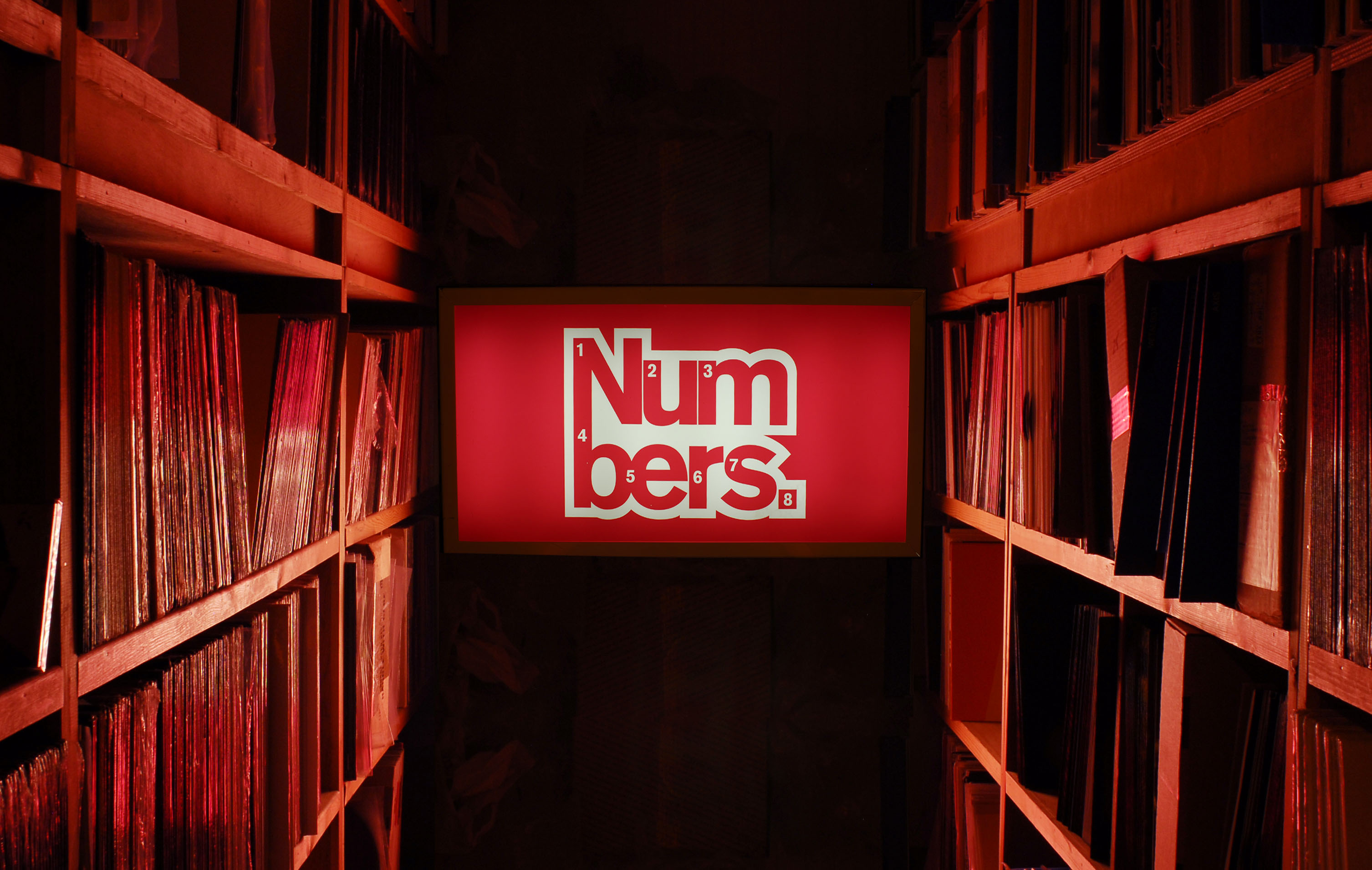




















No comments:
Post a Comment